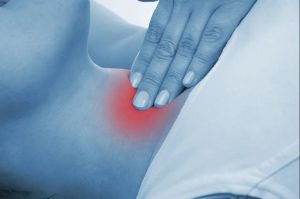
In the bright and beautiful spring, many people are possessed by “spring sleepiness”: lethargy, tiredness, listlessness, weakness…
Some sleepiness is caused by poor rest, but another type of sleepiness is an important signal that the “thyroid” is out of control, and almost 98% of patients do not know that they are sick.
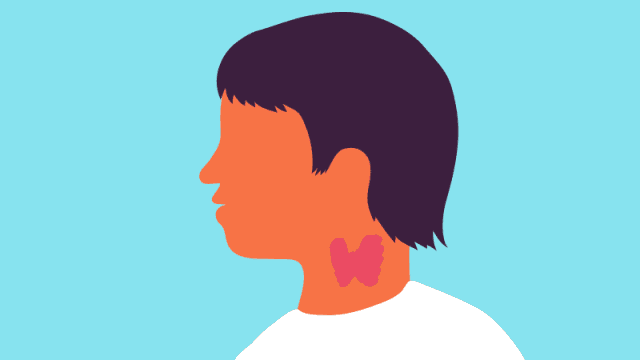
Let us tell you why an abnormal thyroid gland makes people drowsy, and teach you how to protect your thyroid.
A kind of drowse is caused by hypothyroidism
The thyroid gland is located 2 to 3 centimeters below the “adam’s apple” and resembles a butterfly. It is the largest endocrine organ of the human body.
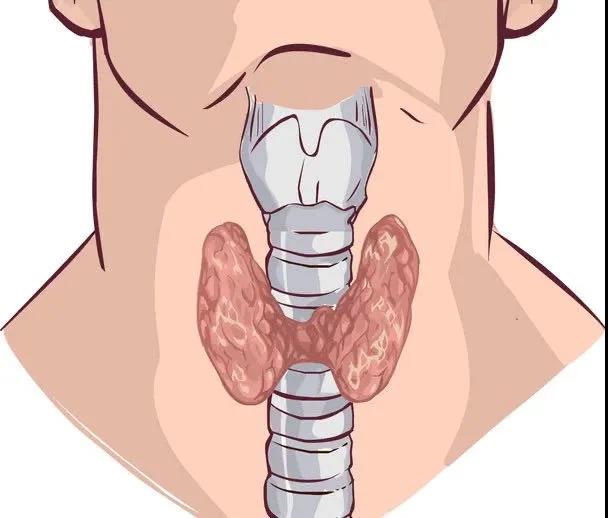
The thyroid hormone secreted by it can promote the body’s metabolism, growth and development, and regulate the functions of various systems throughout the body, such as cardiovascular, digestive tract, hematopoietic system, nervous system, etc. Fever and sweating are thyroid hormones at work .
When there are many thyroid hormones, it can make people excited;
If you don’t have enough thyroid hormones, you will be sluggish, have no energy to do anything, and always want to sleep, and. You already sleep for seven or eight hours, but still feel very sleepy.
Abnormally low activity of the thyroid gland, commonly known as “hypothyroidism”, can lead to a decrease in the body’s metabolic level, and its symptoms are insidious, which can easily be confused with chronic fatigue syndrome, menopausal syndrome, and anxiety.
If you often feel sleepy,lethargic , drowsy, tired, and not motivated to do anything, you should consider the possibility of hypothyroidism.
Generally speaking, women are more likely to have hypothyroidism than men; the older the age is, the higher the prevalence is. If it is not detected and treated in time, it may affect women’s menstruation, ovulation, and even lead to infertility.
Three ways to self-test hypothyroidism risk
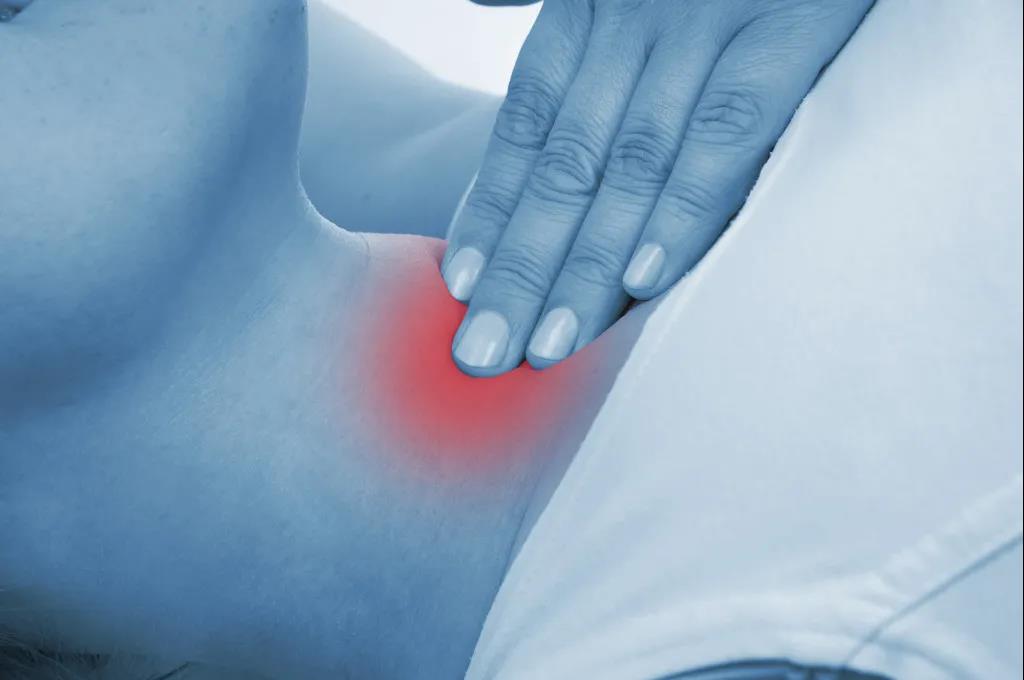
1.Pull hair Test
Do not wash your hair for 3~5 days, stroke out a lock of hair (40~60), and then pull a little harder from the root of the hair to observe the condition of hair loss.
Hair loss of more than 5 roots can predict pathological hair loss, and hair loss is one of the typical symptoms of hypothyroidism.
2.Test the temperature
When there are excessive secretion of thyroid hormones, the patient is afraid of heat. Hypothermia will occur when the secretion is insufficient.
For 3 consecutive days, Measure the basal body temperature in the morning without food or activity. Under normal circumstances, the body temperature under the armpit is 36°C~37°C. If the test result is lower than 36°C, it indicates that the basal body temperature is too low, indicating that there may be a risk of hypothyroidism.
- 10 symptoms self-test
If the level of thyroid hormone is low, almost all organs will be affected, such as affecting blood lipids, skin, intestines, and causing heart disease, anemia, osteoporosis and other diseases.
If you get 5 of the following 10 symptoms, you may suffer from hypothyroidism.
①Weakness and drowsiness; ②memory decreased, slower actions and reactions; ③Lack of appetite, but weight gains (because of reduced body consumption); ④Constipation (because of slower bowel movements); ⑤Skin becomes dry, seldom sweats, and hair Dry, hair loss, 1/3 of the eyebrows can fall off;
⑥ Fear of cold, even when other people feel that the temperature is suitable (because the body’s heat production capacity is reduced);
⑦Have many negative thoughts and feel depressed; ⑧Muscles and bones are stiff, even painful; ⑨ Blood pressure increases or heartbeat slows down (because the heart will have mucinous edema and weak contraction);
⑩Cholesterol increases.
By taking blood to check thyroid function, the diagnosis of hypothyroidism can be confirmed. Thyroid function includes thyroid stimulating hormone TSH, thyroxine T4, triiodothyronine T3 and other items.
Effective treatment in time, some hypothyroidism can be cured.
To do 5 things to protect the thyroid
The fourth large-scale epidemiological survey shows that the prevalence of hyperthyroidism in my country is 1.22%, and hypothyroidism is 13.95%. Do the following 5 things to treat your thyroid well.
Keep your neck away from radiation
Radiation is a clear cause of thyroid cancer. Try to stay away from the radiation environment at work and life. When taking X-rays, try to avoid the thyroid area.
Women should check their thyroid function before pregnancy and wait until the thyroid hormone level is adjusted to normal before getting pregnant.
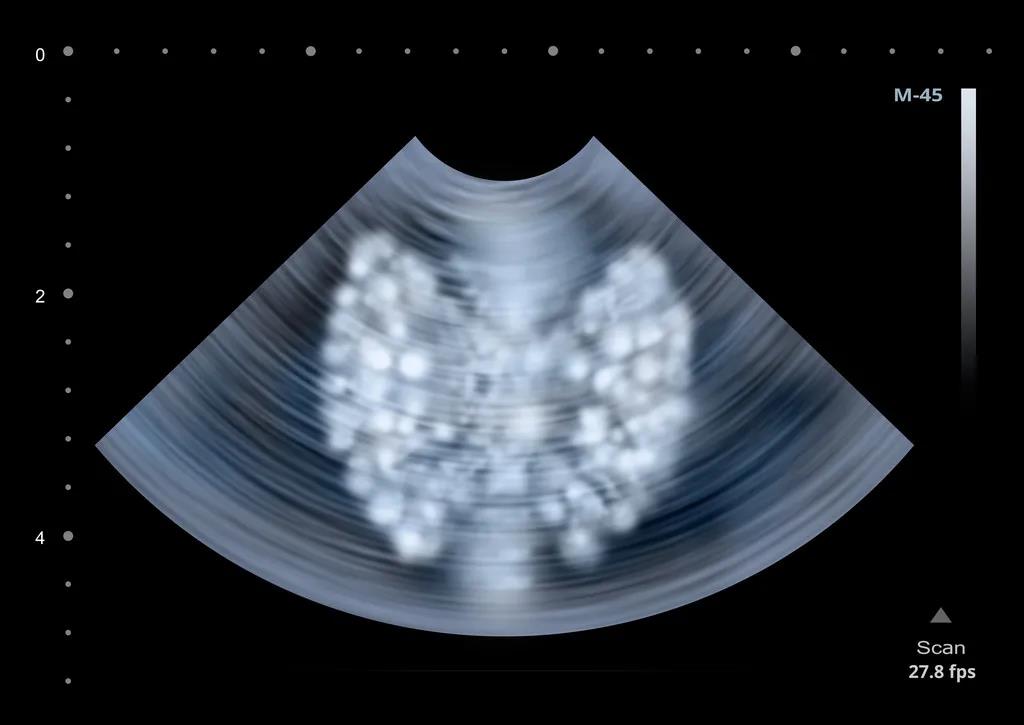
Ensure nutrition, but limit cholesterol intake
Hypothyroidism diet requires nutrient-rich, supplemented with enough protein, and eat more lean meat, fish, skinless poultry, protein, soy products, and so on.
Due to decreased metabolism in patients with hypothyroidism, blood cholesterol levels can often rise. It is recommended to limit cholesterol-rich foods, such as egg yolks, butter, nuts, tahini, fatty meat, pork belly, etc.
It is best to control the daily oil within 20 grams.
Pay attention to iron supplementation to prevent anemia
Due to insufficient thyroid hormones, patients with hypothyroidism may have red blood cell synthesis disorders, prone to anemia, and decreased iron absorption, which further aggravates anemia tendency.
Therefore, patients with hypothyroidism need to consume iron-rich foods, such as lean meat and animal blood. At the same time, pay attention to supplement folic acid, vitamin B12, vitamin C to promote hemoglobin synthesis and iron absorption.
Do not stay up late and not be anxious
Many patients with thyroid disease have problems such as staying up late, nervousness and anxiety, and high work pressure.
It is necessary to combine work and rest, live a regular life, avoid overwork, maintain a happy spirit, and learn to quickly resolve bad emotions.
Avoid iodine deficiency
If you do not have hyperthyroidism, you should eat iodized salt and some seafood to avoid iodine deficiency, unless you live in an area with high water iodine.
At the same time, avoid excessive iodine, avoid long-term, large amounts of high-iodine foods such as kelp, seaweed, etc.; use iodine-containing drugs rationally under the guidance of a doctor.
In addition to hypothyroidism, common thyroid diseases include hyperthyroidism, thyroid nodules, and thyroiditis.
Thyroid nodules: the incidence is very high, most of them are benign. Most patients can be followed up every 6 to 12 months without special treatment. In some cases, surgery is an option. Do not lack iodine or excessive intake of iodine in your life.
Hyperthyroidism: Iodine intake is closely related to the stability and recurrence of hyperthyroidism. Patients with hyperthyroidism are not recommended to eat kelp and seaweed, and non-iodized salt is recommended for cooking.
Thyroiditis: Strictly follow the doctor’s guidance, take the medicine on time and in the amount, do not stop the medicine without authorization; avoid colds, and other infections.
Comments